
Individual rural communities cannot take on every issue on their own. Issues and opportunities cross jurisdictional boundaries and affect people, places, and businesses in whole regions. Likewise, different issues and opportunities define different regions; for example, the region involved in a watershed issue might be different than a meaningful workforce development region, or regional food system, or media market.
The bottom line is that rural communities, interests, organizations, and resources most often must band together and work together to make an appreciable difference and sometimes to achieve a critical mass needed to access outside resources and investment.
Working as a region in collective efforts also decreases the possibility of individual actors working at cross purposes and makes the most of existing resources by reducing wasteful duplication. It is vital that outside investments from federal and state governments, private sector, and philanthropy provide design and resource incentives to support regional collaboration within both rural and rural-urban regions.
BUILDING BLOCK EVIDENCE
Evidence and expert opinion suggest that this building block is important because a regional approach accounts for the complex flows of people, capital, information, ideas, and natural resources across the rural-urban spectrum and allows for addressing complex change, as with environmental change.1 Regional approaches may also help address inequities.2 Different constellations of “regions” exist as some are all rural while others include both rural and urban areas. Some scholars have argued for regional approaches to avoid the harmful rural-urban dichotomy and promote positive and productive interactions between communities across a region.3 However, most academic research and public policy are still steeped in the rural/non-rural dichotomy, a barrier to more nuanced explorations of regional analysis, particularly in rural areas.4
Of note are two more comprehensive studies that examine regional approaches and interdependencies in North America. The Canadian Regional Development Research Initiative is grounded in five themes pulled from new regionalism literature: multi-level collaborative governance; place-based development; rural-urban interactions; integrated development; and learning and innovation.5 One study in the project explored rural-urban interdependence in four different Canadian regions. Key informants’ perspectives supported arguments in the literature for an expanded view of rural-urban interdependence that goes beyond a sole focus on trade and includes other kinds of exchanges, institutional links, the environment, and identity.6 Many respondents mentioned the importance of the exchange of ideas and knowledge. Unsurprisingly, the salience, implementation, and value of these different forms of interdependence varied across regions (and across time).
The Regional Solutions for Rural and Urban Challenges Project explored the conditions under which regional approaches improve social and economic outcomes and entailed a comprehensive literature review, stakeholder and expert interviews, and case studies in US regions.1 The study points to the potential for regional collaboration and action to improve social and economic outcomes in regions while recognizing the need for additional research to further build evidence. Key findings include: the recognition that the contributions rural America makes to regions and the US are “often unrecognized, undervalued, and almost always unmonetized” (p. 3); public and nonprofit regional development organizations foster interactions across the rural-urban spectrum, are shaped by their context, and are subject to changing social, economic, environmental, and technological factors (see also Aspen-Hubs Report8); strategic collaboration can help navigate and shift prevailing power dynamics, particularly when working across the rural-urban spectrum; and addressing inequities requires intentional design, policy, and practice.
Documentation of regional rural efforts can be found in field scans, organizational reports, case studies, and evaluations of individual programs. For example, in a recent field scan of rural community and economic development leaders recommend regional collaboration that recognizes rural communities as essential components of regional economies and takes a whole-community approach for effective rural development.9 Evaluation research on more structured governmental initiatives has found positive impacts of regional analysis and action. For example, the social and economic impact related to regional food hubs (USDA and Wallace Center, 2012 Regional Food Hub Resource Guide)10 or the economic impacts (lower unemployment, income growth, and decreased child poverty) associated with the Delta Regional Authority.11,12 Findings suggest a positive cost-benefits balance even for smaller regional economic development commissions.
- Allen 2010
- Chapple 2015
- Douglass 1998 in Allen 2010
- Dabson et al., Locus Impact Investing 2020
- Minnes et al. 2019
- Reimer et al. 2019
- Locus Impact Investing, Dabson et al. 2020
- Aspen-Hubs Report
- CSG, Dabson & Chitra 2021
- 2012 Regional Food Hub Resource Guide
- Morin & Partridge, 2011
- Pender & Reeder 2011
Curated Resources
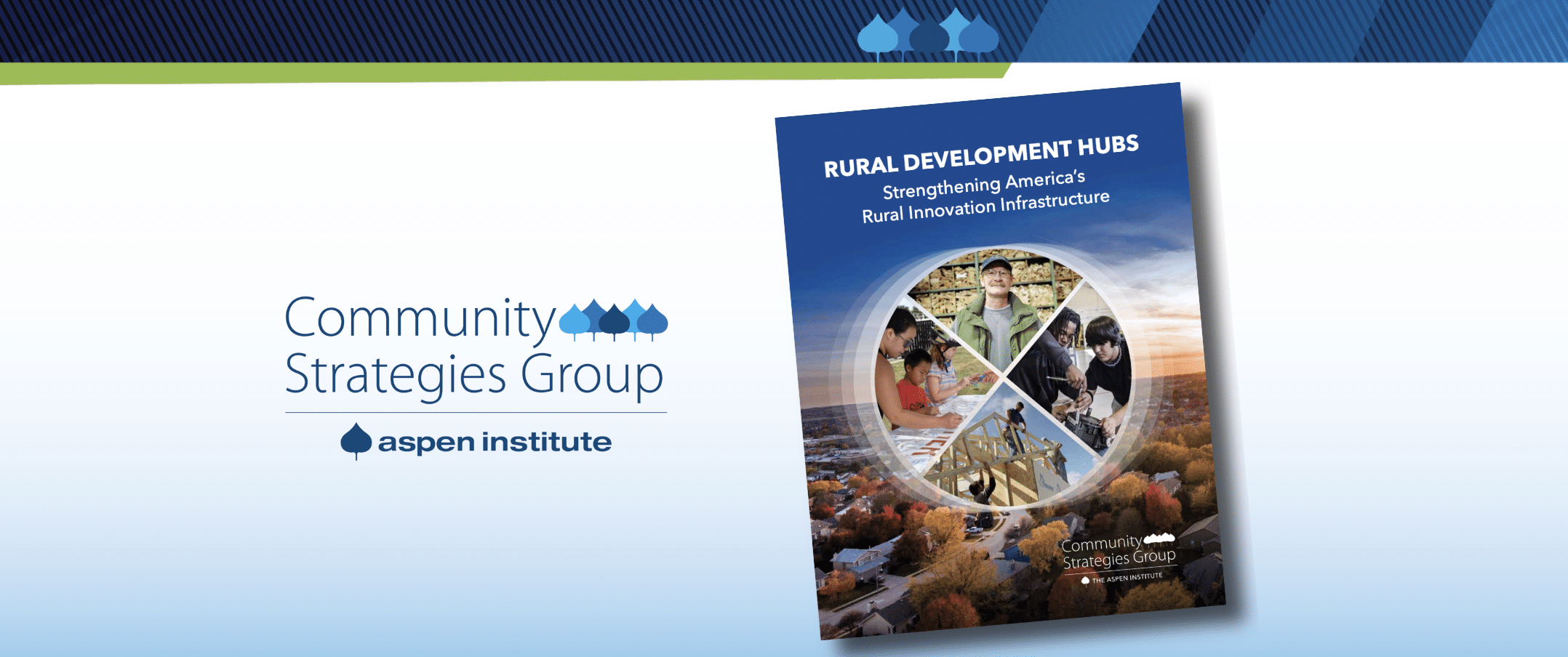
Rural Development Hubs Report
Rural Development Hubs are a specific set of intermediaries that are doing development differently in rural America. They are main players advancing an asset-based, wealth-building, approach to rural community and economic development.

WealthWorks: A Powerful Tool for Thriving Rural Places
WealthWorks is an approach to doing economic development differently that inspired and continues to inform the Thrive Rural Framework. Learn more about the WealthWorks approach.
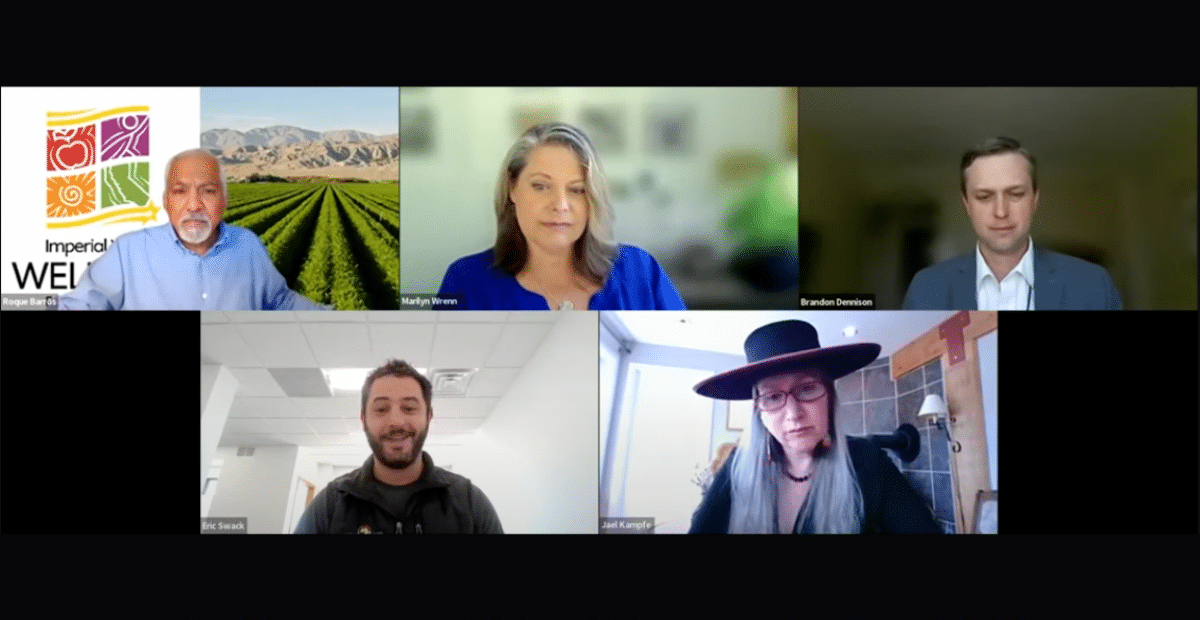
Seizing the Moment: Regional Collaboration
Event recap blog with resources and big-picture insights on working regionally to increase capacity to drawn down federal funding.

From Competition to Cooperation: Rural Wealth Creation
Insights from rural practitioners who are advancing equitable prosperity and economic development in a way that embraces and strengthens the unique assets of rural regions.

Pathways to Health Equity: Rural Wellbeing and Regional Assets
How the health equity and economic development fields intersect and can collaborate to bring prosperity to rural communities.

How To Organize a Rural Action Infrastructure
Discussion with rural leaders about working together across interests and regions to take advantage of opportunities.
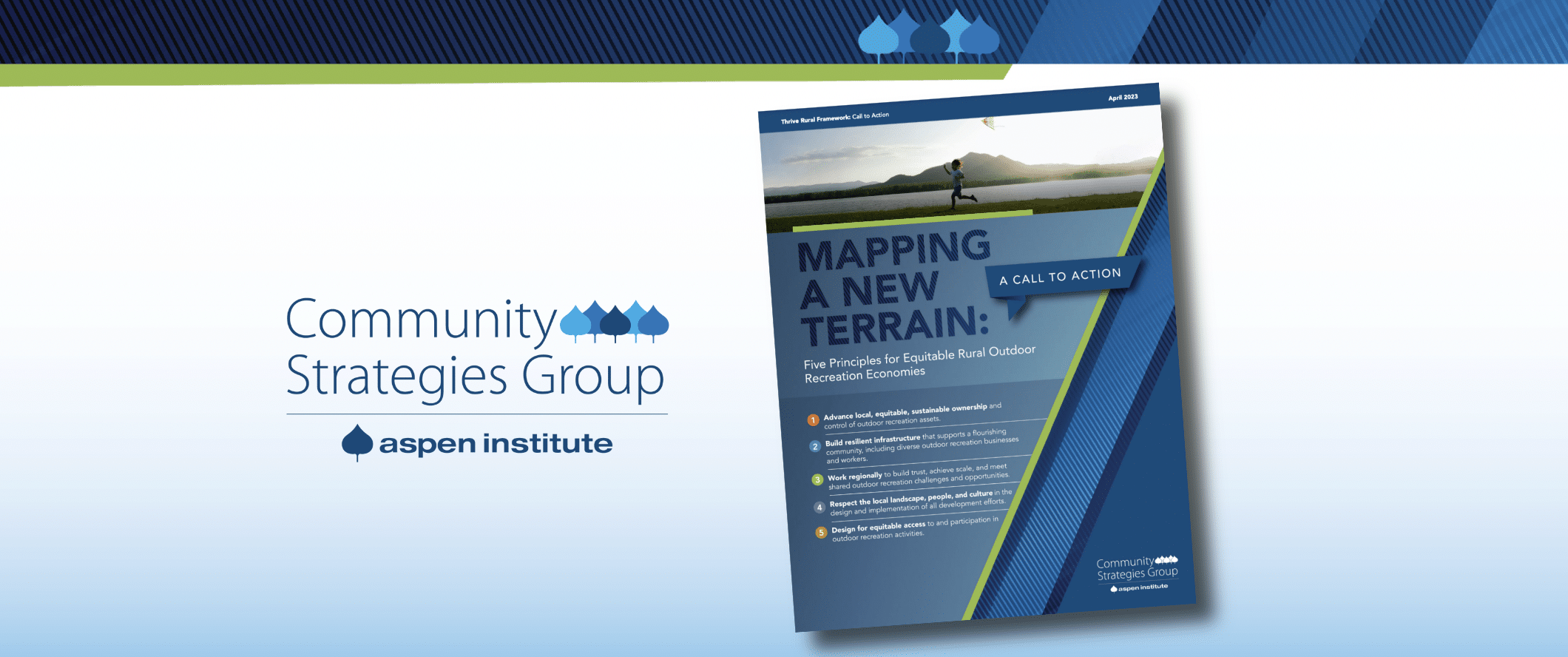
Mapping a New Terrain: Call to Action
As new rural outdoor recreation economies take root, we can meet this moment by improving how we do outdoor recreation development to better support rural families, businesses, and workers, create more sustainable and equitable economic systems, and improve local health and wellbeing.

Building Capacity in Rural & Indigenous Communities
Insights and learnings from rural practitioners on how organizational capacity and technical assistance can be carefully and intentionally strengthened to grow economies, health, and livelihoods for each and every person in their regions.
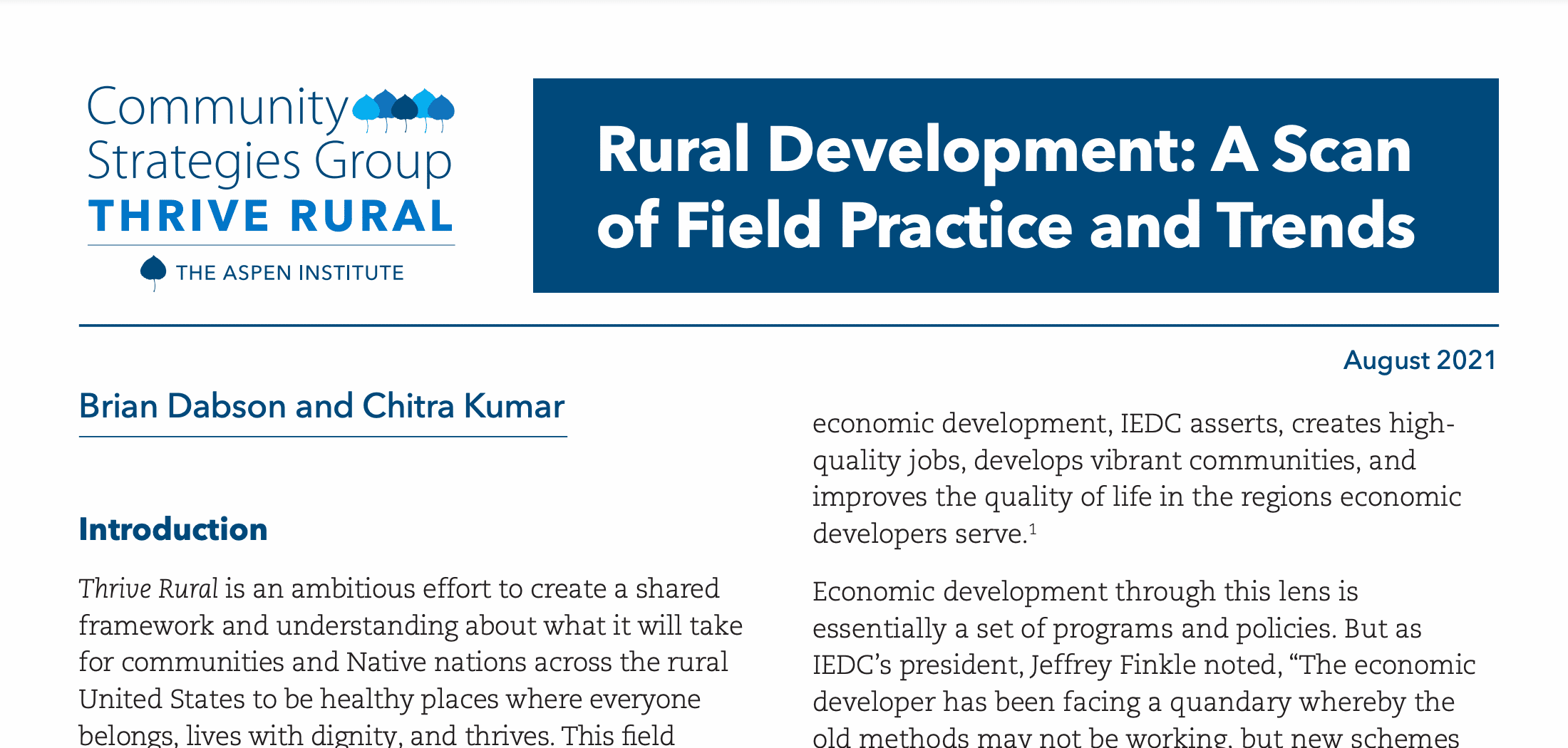
Rural Development: Field Practice and Trends
What must happen for economic development to foster a more prosperous, healthier, equitable and environmentally sustainable rural America? This scan…
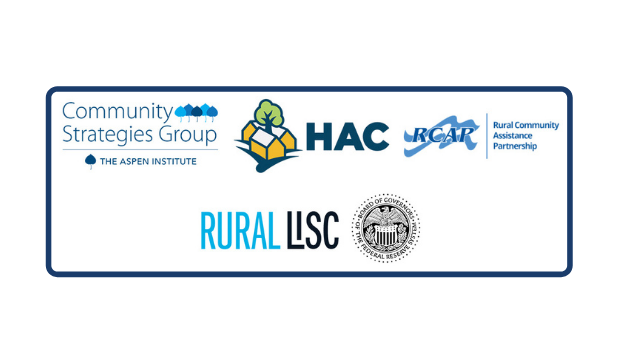
Rural Field Leaders Drive Critical Conversations
Setting the scene: Over eight hundred people in the virtual room, watching and listening, sharing resources in the chat, and…
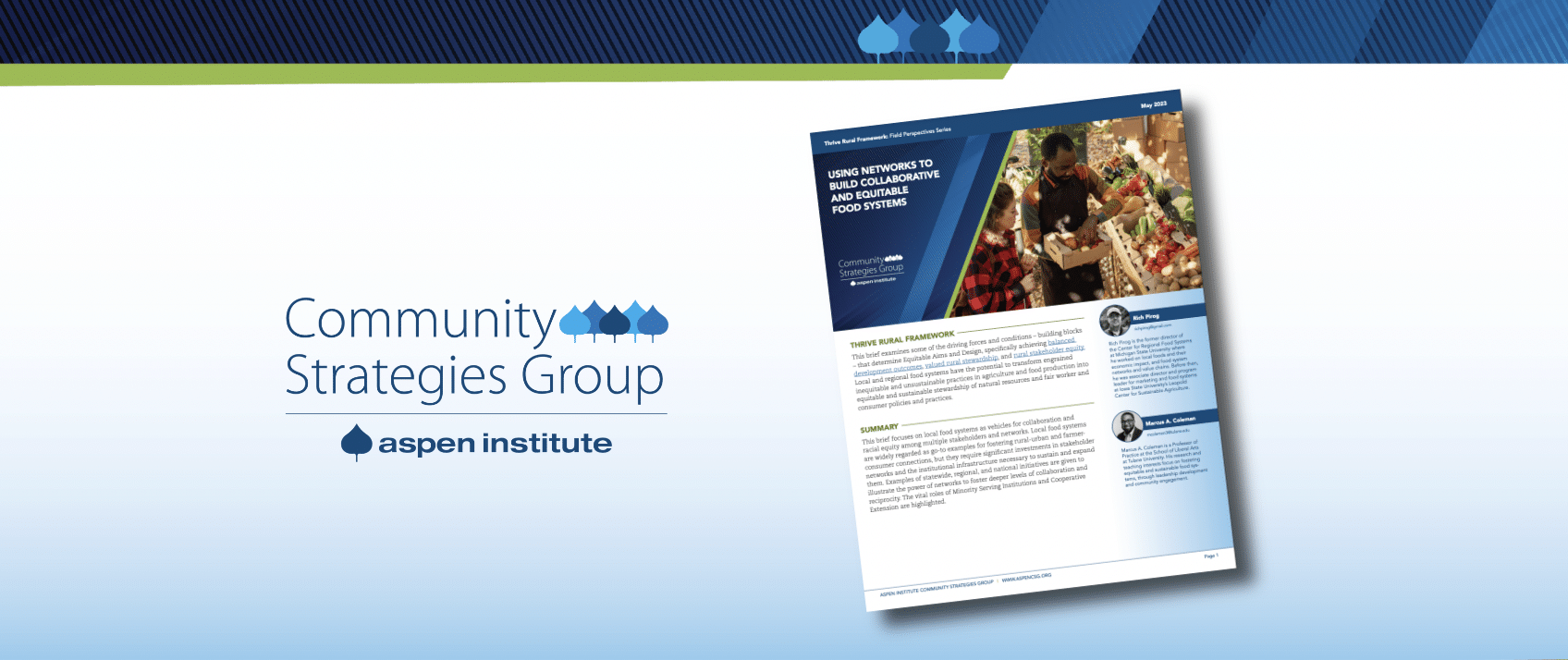
Using Networks To Build Collaborative & Equitable Food Systems
This brief focuses on local food systems as vehicles for collaboration and racial equity among multiple stakeholders and networks.

Native Nation Building: It Helps Rural America Thrive
Native nations and rural communities, working side-by-side and together, can strengthen the potential for thriving rural regions.
Field Items

ACCELERATING RURAL PROSPERITY THROUGH REGIONAL COLLABORATION
National League of Cities
National League of Cities
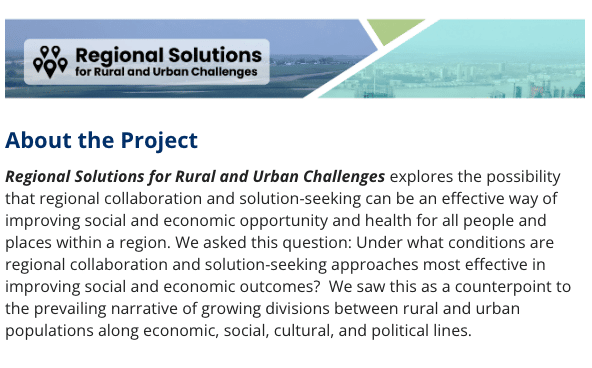
Regional Solutions for Rural and Urban Challenges
Locus Impact Investing Regional Solutions project explores the possibility that regional collaboration and solution-seeking can be an effective way of improving social and economic opportunity and health for all people and places within a region.

KEY FACTORS AND STRATEGIES FOR URBAN AND RURAL COMMUNITIES
National League of Cities
Robust connectivity helps align the diverse strengths and assets present within regions.

HOW TO WORK IN COALITIONS
Western Organization of Resource Councils
The Western Organization of Resources Councils (WORC) created a worksheet with tips for successful coalitions, questions to consider before joining coalitions, and more.

FEDERAL REGIONAL COMMISSIONS AND AUTHORITIES: STRUCTURAL FEATURES AND FUNCTION
Congressional Research Service
The Congressional Research Service’s report describes the structure, activities, legislative history, and funding history of the seven federal regional commissions and authorities
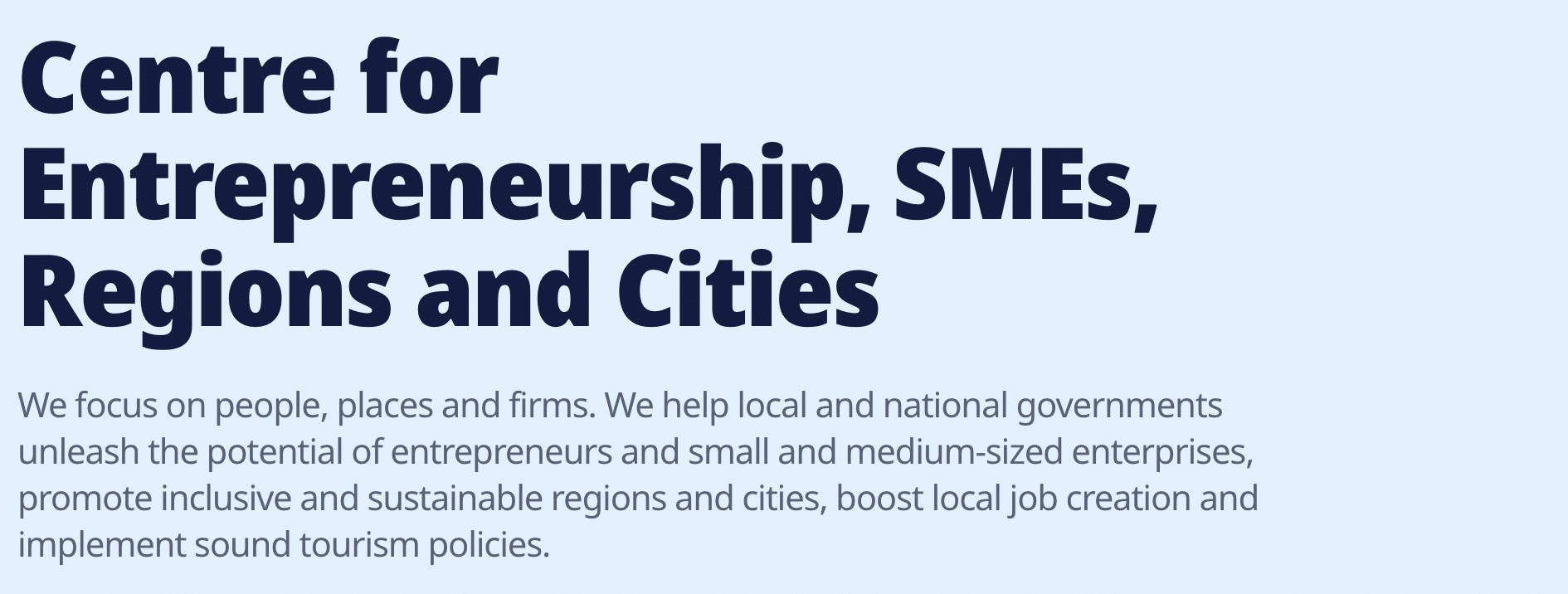
REGIONAL DEVELOPMENT POLICY
Organisation for Economic Co-operation and Development (OECD)
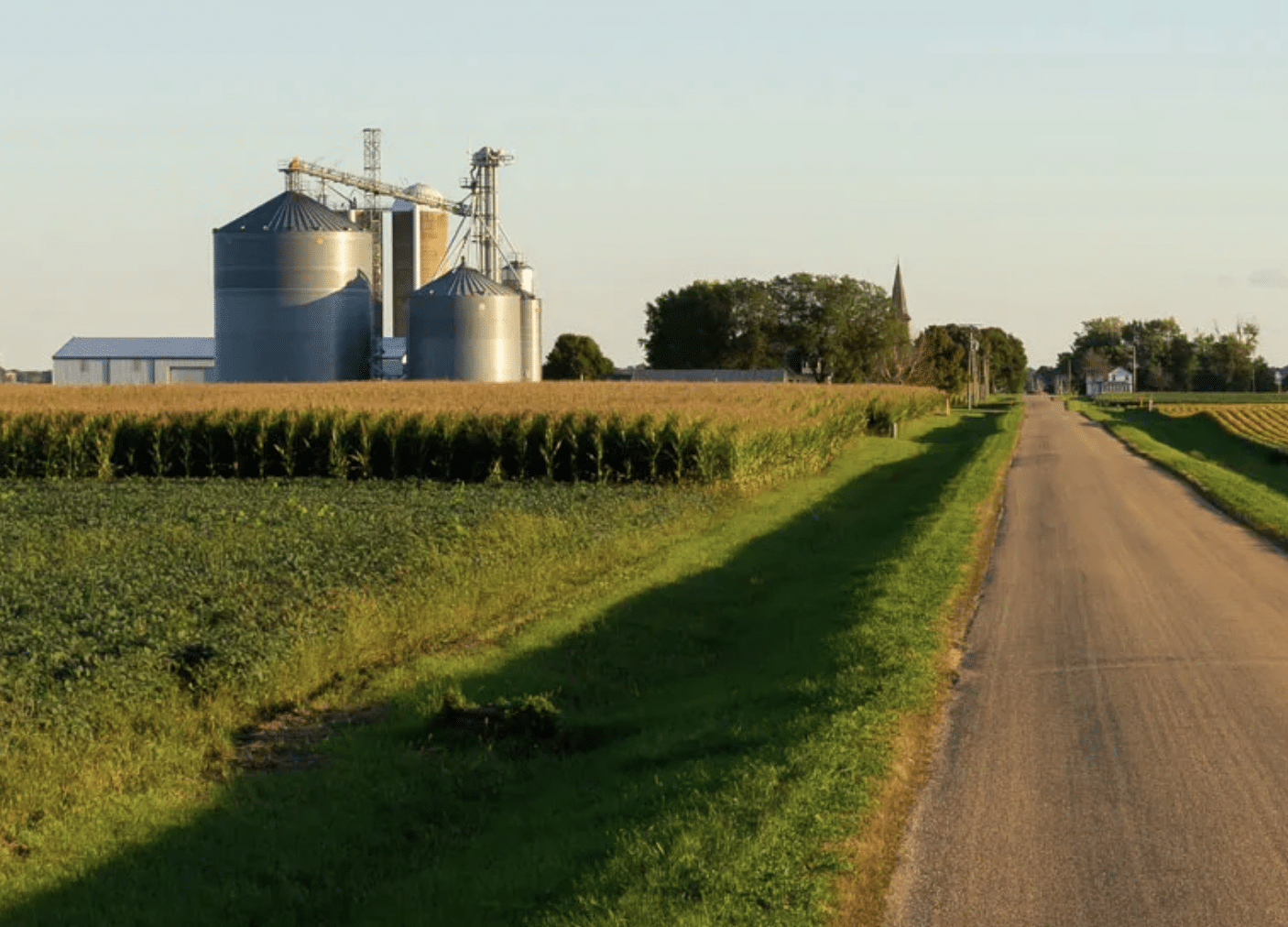
INFORMATION ON THE REGIONAL RURAL DEVELOPMENT CENTERS
USDA National Institute of Food and Agriculture
The NIFA Regional Rural Development Centers play a unique role in USDA’s service to rural America. They link the research and educational outreach capacity of the nation’s public universities with communities, local decision-makers, entrepreneurs, families, and farmers and ranchers to help address a wide range of development issues.

REGIONAL FOOD HUB RESOURCE GUIDE
USDA Agricultural Marketing Service
HSDA report on food hub impacts on regional food systems, and the resources available to support their growth and development.
We see the framework as a living document, which necessarily must evolve over time, and we seek to expand the collective ownership of the Thrive Rural Framework among rural equity, opportunity, health, and prosperity ecosystem actors. Please share your insights with us about things the framework is missing or ways it should change.
